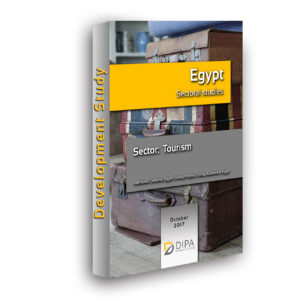 In the wake of the upheaval of recent years, Egypt’s political transition would appear to be complete, with the current parliament largely supportive of the president’s policies. However, security challenges are undermining economic recovery, and the country is underperforming in several key economic sectors, despite overall bright prospects.
In the wake of the upheaval of recent years, Egypt’s political transition would appear to be complete, with the current parliament largely supportive of the president’s policies. However, security challenges are undermining economic recovery, and the country is underperforming in several key economic sectors, despite overall bright prospects.
Egypt is the 29th largest country in the world and the 4th largest country in the Middle East and North Africa. It is the most populous country in the region, with a young population of 88 million, and a relatively high birth rate. The Egyptian system of government reflects a combination of the prime ministerial and presidential systems. The former commander of the armed forces, El-Sisi, currently serves as chief of state.
Tourism represents a cornerstone of the Egyptian economy and a critical source of hard currency, making considerable contributions to the national GDP and employment. From the all-time high of 15 million visitors reached in 2010, numbers have fallen significantly, due to security threats and political upheaval. Tourism is projected to rebound, but it may take longer than previously expected.
The business environment in Egypt is restrictive, with the World Bank ranking it 131 out of the 189 countries surveyed in its 2016 Doing Business. While its political and security environment remains uncertain, the relative stability under President El-Sisi is encouraging FDI across key sectors, as economic momentum gradually gathers pace.
The full Development Study deeply analyses the aforementioned as well as several other relevant developments both from a local and a global perspective with the purpose to present the prospects of the Egyptian economy and deliver a set of forward-looking views for businesses and investors.
1. Country Profile
1.1 History of Egypt
1.1.1 Modern Egypt
1.1.2 Post-independence period
1.1.3 Egypt’s Arab Spring
1.2 Geography
1.2.1 Area and Boundaries
1.2.2 Topography
1.2.3 Land Use and Water Resources
1.2.4 Environmental Concerns
1.3 People and Society
1.3.1 Population and National Identity
1.3.2 Demographics
1.3.3 Societal Characteristics
1.4 Government
1.4.1 Framework of Government
1.4.2 Executive Branch
1.4.3 Legislative Branch
1.4.4 Judicial Branch
1.4.5 Political Parties and Leaders
1.5 Main Infrastructure
1.5.1 Transportation
1.5.2 Tele Communications
1.5.3 Energy
1.6 Key Industries and national resources of commercial interest
2. Tourism
2.1 Tourism in a thematic and historical perspective
2.2 Contribution to GDP
2.3 Contribution to Employment
2.4 Visitor Exports and Investment
2.5 Different Components of Tourism
2.6 Egypt the Future – Tourism
3. Doing Business
3.1 Starting a Business
3.2 Dealing with Construction Permits
3.3 Getting Electricity
3.4 Registering Property
3.5 Getting Credit
3.6 Protecting Minority Investors
3.7 Paying Taxes
3.8 Trading across Borders
3.9 Enforcing Contracts
3.10 Resolving Insolvency
3.11 Business Environment Indexes
